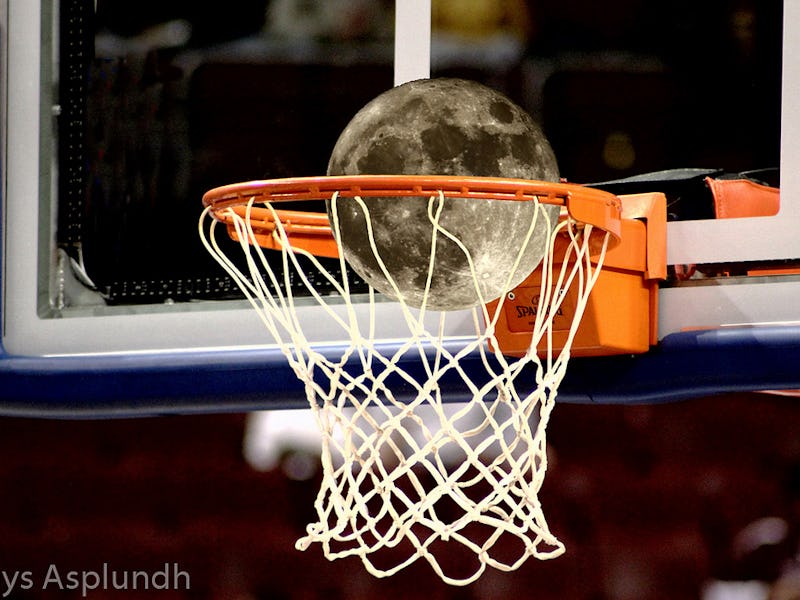Will There Be Sports in Space? Former Astronaut and NFL Player Says Yes
Get ready to play "Float Ball."

For thousands of years, athletic competition has been a staple of human culture; everywhere we go, we bring sports with us. Freediving competitions push athletes to the depths of human endurance, and wingsuit racers leap from planes in pursuit of glory and adrenaline. Given our proclivity for athletics, it’s only natural that sports will eventually make their way to the final frontier. And if there’s one authority on the matter, it’s former astronaut and NFL player Leland Melvin.
In the third episode of I Need My Space, Inverse’s podcast about all things extraterrestrial, Melvin tells hosts Rae Paoletta and Steve Ward that he definitely envisions people playing sports in space. A few astronauts played badminton on the International Space Station (ISS) in February 2018, and Melvin says that one of his friends has already established rules for a space sport called “Float Ball.”
“I think it was [meant to be played] on the Moon or Mars, but you had this one-sixth or one-third G thing going, so you could actually bounce up and float like really high,” Melvin says. “While you were floating, the opponents and your fans could actually guide you where you needed to go.”
It’s a bit like basketball, but, you know, with much more hang time.
Playing sports in space won’t be an easy task because simply moving in zero gravity has a rather steep learning curve: “Your brain and your body are really trying to figure out how to move,” Melvin says. It’s difficult enough to navigate the ISS without knocking over important equipment, let alone have the body control to catch a pass or kick a ball.
Sadly, the insurmountable obstacle of zero gravity means that some sports will never make it out of this world. For Melvin, there’s one sport at the top of the list — curling.
“I’m not a fan of curling, but I’m respectful of their craft,” Melvin said.
Check out more from the conversation with Leland Melvin in the third episode of I Need My Space. It’d mean the world to us if you subscribed, rated, and reviewed INMS.